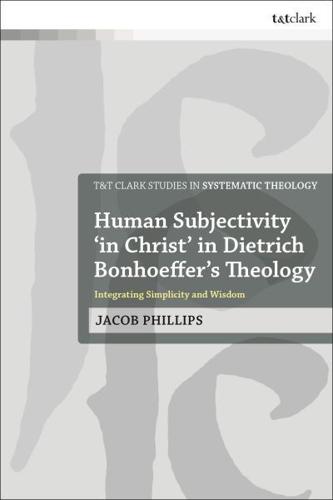Publisher's Synopsis
Jacob Phillips presents a critical study of a neglected aspect of Dietrich Bonhoeffer's theology: his writing on human subjectivity, self-reflection, and individual identity 'in Christ'. In response to the rise of chronic self-representation through digital technology, Phillips argues that Bonhoeffer presents a radical challenge, maintaining that - from the perspective of Christian theology - there is something deeply negative about beholding representations of oneself. Bonhoeffer instead holds that discipleship means adopting a posture of radical agnosticism toward one's own identity.
Phillips focuses on the interrelation of 'simplicity' and 'reflection' in theological cognition and ethical deliberation, showing a wider significance in contemporary theological anthropology, soteriology and ethics. By following the tradition of reading Bonhoeffer in relation to the philosophical sources, such as Wüstenberg , Janz, Whitson-Floyd, Marsh, Zimmermann, Gregor, Phillips highlights the ways in which Bonhoeffer's work relates to modern debates in epistemology and ethics generally, and that of Wilhelm Dilthey and hermeneutical phenomenology in particular. This volume offers a detailed theological analysis of the themes of self-identity, human subjectivity, and self-understanding, which are highly pertinent for contemporary society.










